March 2023
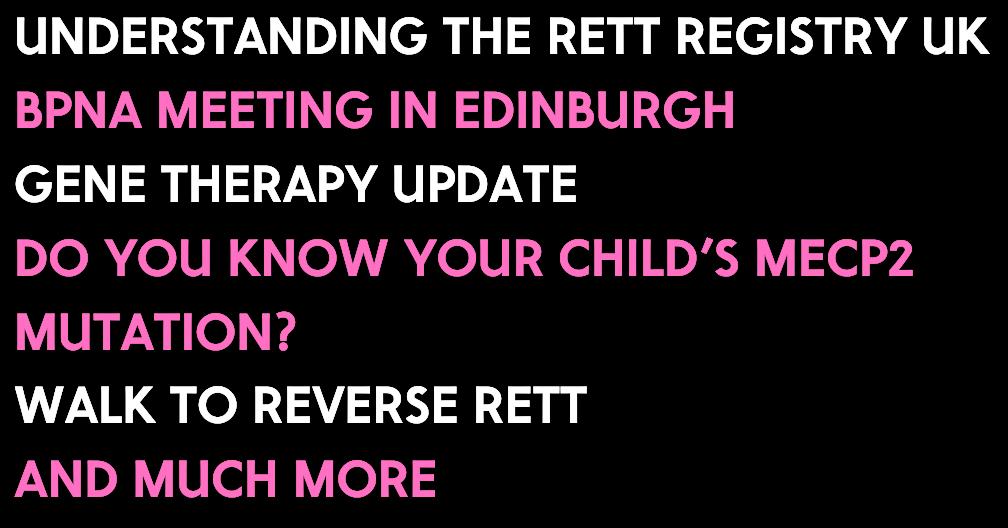


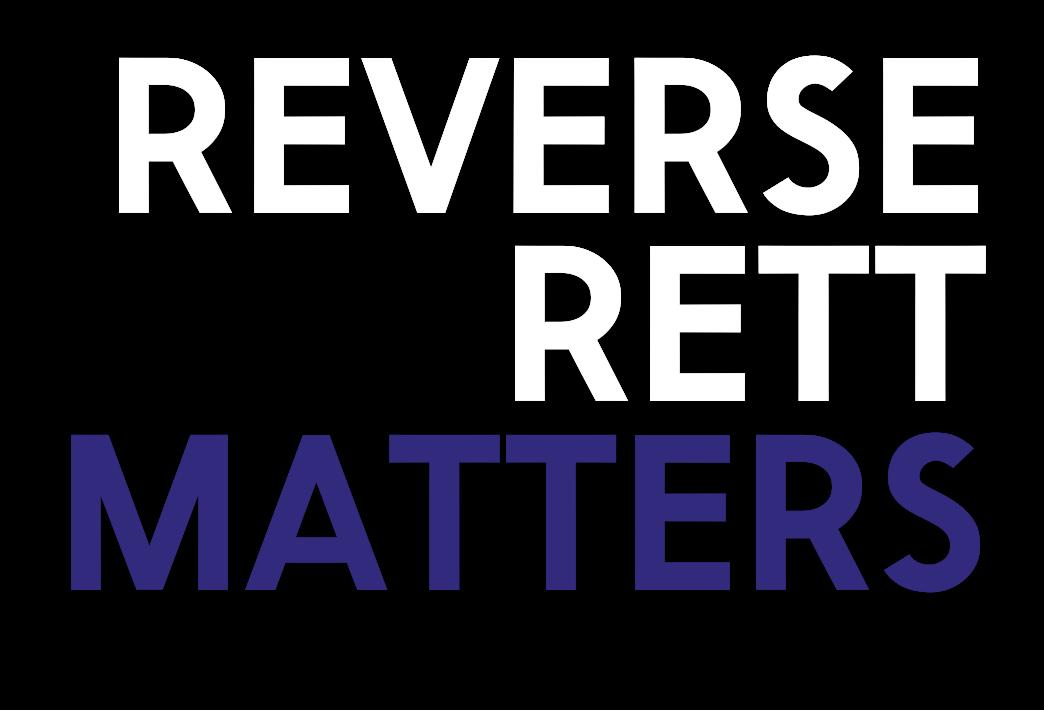

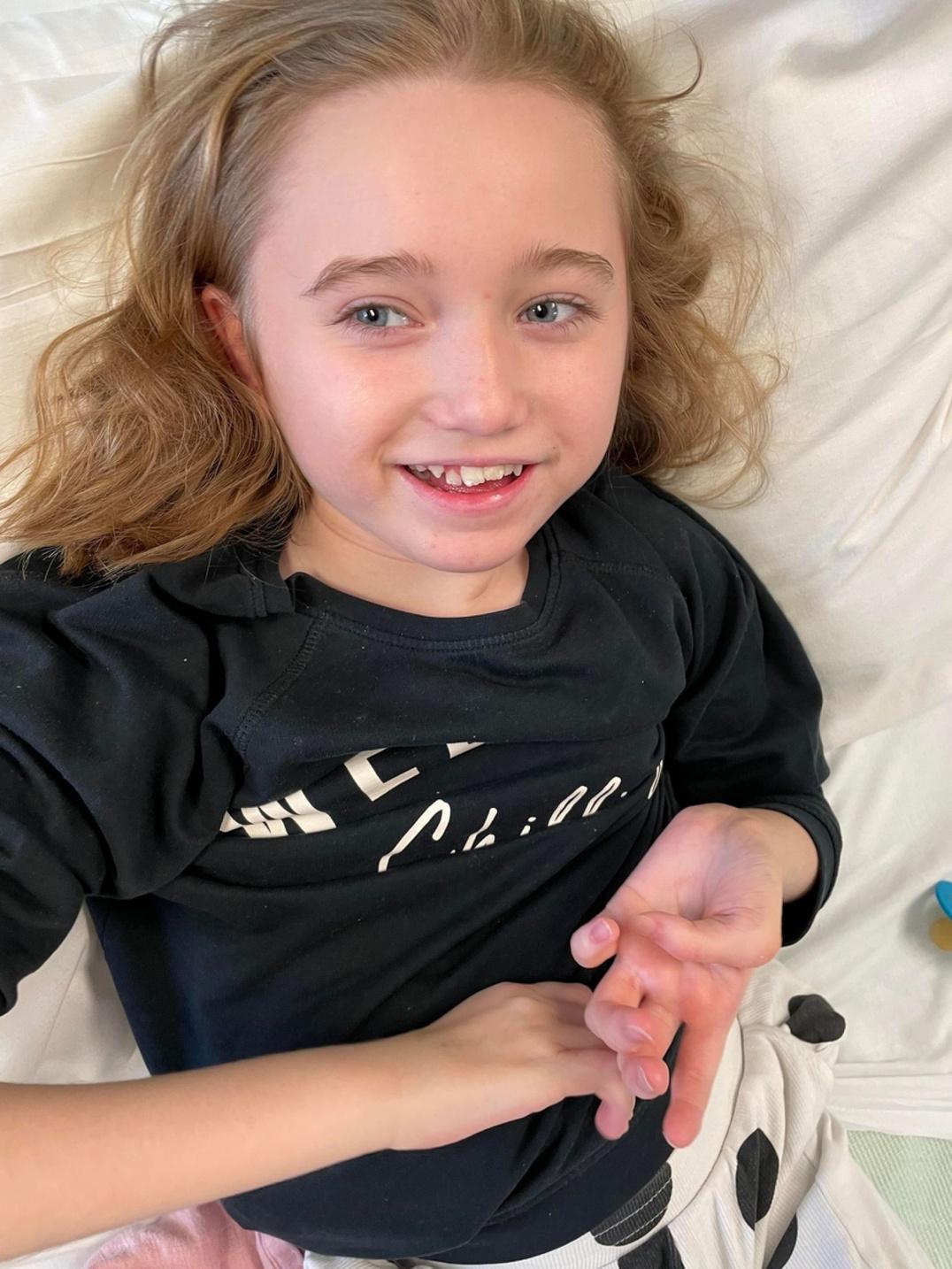
TRUSTEES
Chair: John H Sharpe
Vice-Chair: Helen Simmonds
STAFF TEAM
CEO: Rachael Stevenson
Clinical Trial Lead/Supporter Care: Andy Stevenson
Design/Marketing: Wesley Havill
Patient Registry Co-ordinator: Ewelina Wasowska
Fundraising special events: Hazel Beiny
Reverse Rett Matters Designer: Wesley Havill

Edited by: Rachael Stevenson
Introduction
Gene therapy in the UK news
Trofinitide news
Understanding the Rett Registry
UK and the Clinical Trial Process
Reverse Rett
Do you know your child’s MECP2 mutation?
Understanding UK Rett Syndrome clinics
BPNA meeting in Edinburgh
Welcome to our two new trustees
Valentine's Day Post
Goodbye to two staff members
Can you walk to reverse Rett?
Shout out to our London
Marathon runners
Rett Talk (formerly Family Forum)
We’ve moved!
The views expressed herein do not necessarily represent the views of the editor or of Reverse Rett Board of Trustees. Parts of this publication may be reproduced with permission, please email rachael@reverserett.org.uk
Reverse
Beehive
Jersey St Ancoats Manchester M4 6JG 07596 139 466 info@reverserett.org.uk www.reverserett.org.uk
Rett
Lofts
CONTENTS
Dear Friends,
We hope this newsletter finds you well. 2023 has started with a bang for us at Reverse Rett and indeed for the Rett community internationally.
Since the beginning of the year, we’ve had two announcements from gene therapy companies about their plans for upcoming clinical trials.
In January, Neurogene announced that the FDA have given them the green light to go ahead for their children’s clinical trial in the USA.
In February, Taysha Gene Therapies announced that they plan to put in an application to the UK regulator, the MHRA, to run a children’s gene therapy clinical in the summer of 2023.
Avid followers of Rett Syndrome research will be aware that Taysha Gene Therapies are already running a gene therapy clinical trial in adults with Rett Syndrome in Canada. We do not expect any news from this trial until summer 2023, but suffice to say, so far this is turning out to be a year when anything could happen!
In March, Acadia Pharmaceuticals announced that the FDA has approved their drug, ‘Trofinetide’ for use in people with Rett Syndrome over the age of two in the USA Many families in the UK and beyond, are concerned about when their child may be able to access this new medicine.
In this issue of Reverse Rett Matters, we’ll be explaining the differences between the different sorts of emerging treatments and show you a timeline of the next milestones to look for
We’ll also be sharing our thoughts on the story of sisters, Teddi and Nala who have been in UK gene therapy news too, as well as information about my recent trip to the BPNA conference in Edinburgh and how what I learned will inform the work of Reverse Rett moving forward.
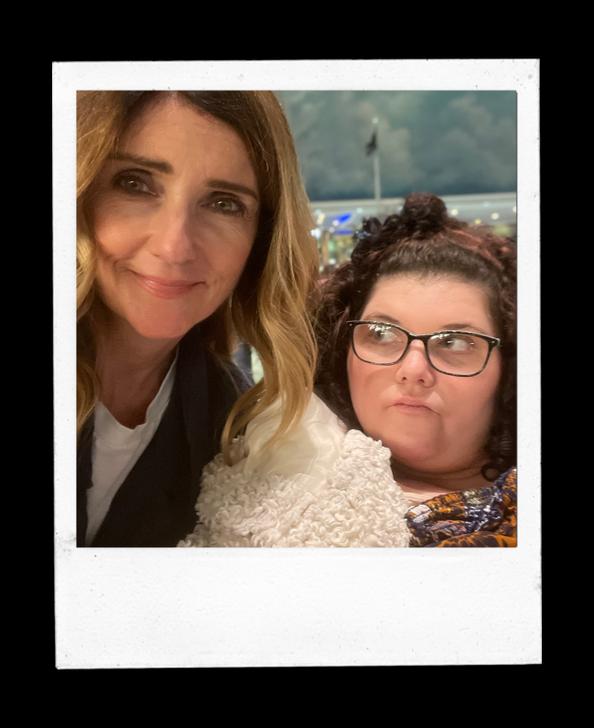
You can also read an article detailing the clinical trial recruitment process at Reverse Rett, written by my colleague, Reverse Rett CoFounder and Clinical Trial Lead, Andy Stevenson. With all the momentum we are seeing in Rett Syndrome research at the moment, if you are a parent feeling overwhelmed and you only want to read one thing, read this.
There has never been a more important time to make yourself aware of what’s happening, to understand what’s involved with clinical trials and all the new treatments you are hearing about and how your child could get involved

If you have questions or comments, or just want to understand any of it better, do get in touch. Hopefully, next quarter, we’ll have even more positive news to share
Until then,
Rachael Stevenson, CEO, Reverse Rett
RachaelStevenson
GENE THERAPY IN THE UK NEWS
Gene therapy has recently been highlighted in the UK because of the story of sisters, Teddi and Nala whose family are affected by Metachromatic Leukodystrophy.
Children with Metachromatic Leukodystrophy are born apparently healthy but MLD gradually attacks the brain and body, leaving children unable to walk, speak, or eat and eventually unable to see or hear. Life expectancy in MLD, untreated, is between 5-8 years old.
Teddi and Nala’s story was particularly moving because the younger sister Teddi, aged 18 months has now received the gene therapy for MLD but the older sister, Nala, at the age of 3 is not a candidate for gene therapy.

After this story was in the news, we had a number of questions from families of older children and adults with Rett Syndrome who wanted to know if this might happen in Rett Syndrome, if gene therapy is shown to be effective.
Whilst it can be the case that NICE, the SMC and other relevant authorities do not approve treatments for children who are older and or those who have already deteriorated past a certain point in this kind of condition, there are some key differences between Rett Syndrome and MLD.
For example, there is no brain degeneration throughout the lifespan of a person with Rett.
Rett Syndrome is caused by mutations in the gene MECP2 This gene makes a protein which we all need for healthy brain function.
Researchers have demonstrated that bringing the protein back to mice without the protein can reverse symptoms even in late stage disease *
Researchers have also shown that removing the protein from healthy adult mice causes Rett symptoms similar to those seen in mice genetically engineered to be missing the protein.**
Whilst we move forward with caution as regards to gene therapy and the potential impact on children, young people and adults with Rett who are already symptomatic, it is also worth noting that the first GT trial currently underway is in adults with Rett Syndrome
As we move into a time where there are an increasing number of gene therapies available for neurological conditions, it’s likely that a more clear distinction will be made between diseases of brain degeneration like MLD and those of brain maintenance like Rett Syndrome.
MLD families and clinicians are now campaigning for MLD to be adding to the newborn genetic screening panel which currently screens for 9 conditions but does not currently include MLD.
Article: www.bbc.co.uk/news/health-64629680
doi: 10.1126/science.1138389.
2011
2. PMID: 21636743;
* Guy J, Gan J, Selfridge J, Cobb S, Bird A. Reversal of neurological defects in a mouse model of Rett syndrome. Science. 2007 Feb 23;315(5815):1143-7.
Epub2007Feb8.PMID:17289941;PMCID:PMC7610836. ** McGraw CM, Samaco RC, Zoghbi HY. Adult neural function requires MeCP2. Science. 2011 Jul 8;333(6039):186. doi: 10.1126/science.1206593. Epub
Jun
PMCID:PMC3150190.
Teddi and Nala
IMPROVING DIAGNOSIS AND SCREENING FOR RETT SYNDROME
At Reverse Rett, we are already focused on diagnosis and screening. In 2023, we have three priorities in this area:
Disease awareness
Through the Count me In campaign, we’ll be reaching out to neurologists, special schools, care homes and community learning disability teams to make sure they know how to identify someone with Rett Syndrome. Once identified, we’ll be working to make sure that those individuals are registered on the Rett Registry UK

Diagnostic initiatives
We’ll be reaching out to industry partners, biotech companies and genetic screening specialists to find a way for no cost or low cost MECP2 screening to be made available for UK young children with Rett Syndrome who may be candidates for upcoming gene therapy trials.
Newborn screening
The NHS Newborn Genomes Programme research study aims to sequence and analyse 100,000 babies’ genomes for a set of actionable genetic conditions which may affect their health in early years.

Rett Syndrome is not included in the study because currently there are no effective treatments.
But with one gene therapy trial underway and another due to begin later this year, it’s part of our role to make sure Rett Syndrome is on their radar so that when treatments are proven to be effective, no children are left undiagnosed and therefore unable to access those treatments.
TROFINETIDE BECOMES THE FIRST LICENSED DRUG FOR RETT SYNDROME IN THE US
Here are some key facts which have been published by the US-based Rett Syndrome Research Trust about Daybue.
The following information is based on RSRT’s interpretation of thepublicly available information includingresults of theLavenderTMtrial, based on the officialprescribing information for DAYBUE. Key Summary Facts of LavenderTM and LILAC-1 Trials:
Trofinetide has become the first drug treatment to be approved by the US Food and Drug Administration FDA for patients with Rett syndrome, age 2 and over. The drugs new license name is Daybue.

This is a significant moment for everyone in the Rett community because until now there has been no approved treatment anywhere in the world for Rett
FDA approval means that from April 2023, Daybue will be available for doctors to prescribe in the USA.
The company which developed Daybue is called Neuren. Neuren have not sold the marketing rights for Trofinetide within the EU or UK.
Whilst it is positive the FDA have recognised the burden of the lack of approved treatments for children and adults with Rett syndrome, it is important for patient organisations like Reverse Rett to be clear about our understanding of a given treatment and the potential for improvement for the patients who have access to it.
61% of patients taking DAYBUE did not improve.
13% of patients were rated as “much improved”.
No data is provided regarding which specific symptomsimprove
85% of patients treated with DAYBUE had diarrhea and 29% had vomiting.
In the study where everyone received DAYBUE, 46% of patients withdrew before completing the study
Concluding thoughts from RSRT
It’s important that every family considering DAYBUE as a treatment for their loved one make their ownrisk: benefit assessment with theirphysician DAYBUE is not a cure
The data from the trial show that there will likely be no change for the majority of patients. A subset of patients may improve. The specifics on what symptoms improvehave not beendisclosed
Read the full article on the RSRT website
UNDERSTANDING THE RETT
REGISTRY UK AND THE CLINICAL TRIAL PROCESS
Reverse Rett has been providing clinical trial recruitment and support services since the first UK drug trial started in 2017. We started the Rett Registry UK all the way back in 2014 as a platform for recruitment for clinical trials and have done much to improve the registry since.
We know from questions we’ve been getting from families and caregivers recently, that it isn’t always clear how people can express interest in being part of UK clinical trials.
So here is a brief explanation of the process below. Do feel free to get in touch with us with questions and comments We can only improve things with your help.
Sign up to the Rett Registry UK
When a clinical trial is due to begin in the UK and sometimes before that point, we write to the families of registered patients in the relevant demographic For example, if we know the age group, we write to families of patients in that age group only, or if the company only want patients within one hour of the trial site, we write to those families only

In this first communication, we are asking only if you would like to express interest in the trial. Families are asked to answer Yes or No in response to the email and have the opportunity to ask any questions they may have. Expressing interest in the trial at this stage does not mean that the family have consented to being part of the trial. It simply gives Reverse Rett permission to contact you again with regards to this trial and enables us to identify which patients’ families do not want them to take part.
Are you registered?
If families write back with a ‘yes, ’ the patient’s name goes on a list in the order in which the response has been received You can also send an email directly to andy@reverserett.org.uk if at any point you are interested in taking part in a trial and we can mark your expression of interest into the Rett Registry UK for you
We want to be as fair as possible to all patients and families and want to do everything we can to ensure this process is smooth as possible for everybody involved
If anybody has any questions on this topic then please contact me at andy@reverserett.org.uk and I'll help all I can.
Once you have registered, set your inbox up to flag up emails from Rett Registry UK
DO YOU KNOW YOUR CHILD’S MECP2 MUTATION?
As an increasing number of pharmaceutical companies are looking to market treatments for people with Rett Syndrome in the UK, we are getting a number of enquiries about who exactly lives with Rett Syndrome in the UK.
Companies are especially interested to know whether most people with Rett Syndrome have had a genetic test for the MECP2 mutation, how many of those tested were positive and whether there is a known mutation
We’ve done some digging to find out what the answers to these questions currently are and thought it would be interesting to share that information with you below


The percentage of mutation splits





MECP2
IN2023,WEWILLBEREACHING OUTTOEVERYONEONTHE RETTREGISTRYUKTOOFFER THEFOLLOWINGHELP:
IN 2023, WE WILL BE REACHING OUT TO EVERYONE ON THE RETT REGISTRY UK TO OFFER THE FOLLOWING HELP:

For all those who have never been tested for mutations in MECP2: template letter to give to your GP plus letter of support from Reverse Rett and Rett UK explaining why this is important
For all those who have never been tested for mutations in MECP2: template letter to give to your GP plus letter of support from Reverse Rett and Rett UK explaining why this is important.
For all those who have had a positive test but do not know the result:
For all those who have had a positive test but do not know the result:
If they have the results letter, they can send their results in for us to interpret.
WHYISTHISIMPORTANT?
WHY IS THIS IMPORTANT?
Gene therapy is a genetic based treatment and therefore gene therapy for Rett syndrome will only be useful for patients who have a confirmed mutation in the MECP2 gene.
Gene therapy is a genetic based treatment and therefore gene therapy for Rett syndrome will only be useful for patients who have a confirmed mutation in the MECP2 gene.
However, companies seeking to market drug treatments for Rett which are not genetic based therapies could also use the MECP2 confirmation as part of the eligibility criteria for access to new medicines
However, companies seeking to market drug treatments for Rett which are not genetic based therapies could also use the MECP2 confirmation as part of the eligibility criteria for access to new medicines.
Template letter for those who do not have their results letter to send to their GP
If they have the results letter, they can send their results in for us to interpret.
Template letter for those who do not have their results letter to send to their GP .
WWW.RETTREGISTRY.ORG.UK
REVERSE RETT AT THE BPNA MEETING IN EDINBURGH
by Rachael Stevenson, Reverse Rett CEO
In January, I attended the annual British Paediatric Neurology Association (BPNA) meeting in Edinburgh.


It was a great week to be there following the announcement by Neurogene that they have received FDA clearance for a clinical trial of their gene therapy product, NGN-401. FDA approval means that Neurogene can now work towards starting their gene therapy trial in the USA. We expect further news about this later in the year.
Those with older children with Rett Syndrome will know that Edinburgh has been at the heart of Rett Syndrome research for more than three decades because of the work of Sir Professor Adrian Bird, who first identified the Mecp2 protein in the early 90s. (1. Lewis et al., 1992)

At the time, no one knew that the protein played a role in Rett Syndrome.
Whilst it was many miles away in Texas, that Professor Huda Zoghbi's lab discovered that mutations in the MECP2 gene (which makes Mecp2 protein) cause Rett Syndrome (2. Amir et al., 1999), it was back in Edinburgh, only 8 years later, that Professor Bird’s lab showed Rett Syndrome to be reversible in mouse models of even late-stage disease, (3. Guy et al., 2007)

Over the last two decades, Prof Bird has worked collaboratively with Rett researchers worldwide via the Rett Syndrome Research Trust (USA) to help progress his basic laboratory discoveries into disease modifying treatments like gene therapies. Professor Stuart Cobb, whose lab is also now at Edinburgh University, was one of the co-authors on the original reversal paper in 2007. Over the last decade, he has been part of the RSRT Gene Therapy Consortium, heavily financially supported by Reverse Rett. Prof Cobb is now Chief Scientific Officer at Neurogene.
 RachaelStevenson,ProfessorStuartCobb &KateMcMaster(Trustee)
Dr Jay Shetty, Rachael Stevenson & Dr Dan Lumsden
RachaelStevenson, Dr Dan Lumsden & Kate McMaster (Trustee)
RachaelStevenson,ProfessorStuartCobb &KateMcMaster(Trustee)
Dr Jay Shetty, Rachael Stevenson & Dr Dan Lumsden
RachaelStevenson, Dr Dan Lumsden & Kate McMaster (Trustee)
It's wonderful to meet up with both of these world renowned scientists at the BPNA conference and also, such a sign of the times that both were present and involved with this clinically-focused meeting.


Also at our meeting, a third co-author on the 2007 reversal paper, Dr Jim Selfridge, who has recently moved from the Bird Lab to the Cobb Lab to further his interest in the more translational aspects of his work.
At Reverse Rett, we have two Scottish trustees, Kate McMaster and Catherine McKinney, who were both also present at the meeting.
The meeting itself was more useful than I had imagined Rather than having a charity stand in a separate room which clinicians had drag themselves away from their colleagues, coffee and snacks to visit, I decided to attend as a participant myself. This meant that not only could I learn from the wealth of information and learnings being shared in the sessions, I was also able to mingle with Neurologists and their colleagues from all across the UK, sharing information about our work at Reverse Rett and especially about the Rett Registry UK This is important because it often neurologists that diagnose our children with Rett Syndrome and we want them to tell families and caregivers from the outset, to sign up.
But why were Reverse Rett at the British Paediatric Neurology Association meeting in the first place? I hear you ask.
As anyone who cares for a family member with Rett Syndrome can attest, doctors are particularly difficult to pin down Due to our work recruiting for and supporting UK clinical trials, we have regular contact with key UK Rett clinicians, but our interactions are usually tightly focused on the specific trial they are involved with I wanted a little more time with them to discuss their thoughts on emerging treatments, more UK trials and how and where treatments demonstrated to be effective might be delivered in the UK.
Overwhelmingly, my sense of the audience of the BPNA meeting was that these are dynamic, treatment-focused clinicians who were there to learn about new research and innovative best practises that they could implement with their own patients. Some of the talks were from clinicians working in disease groups which now have approved gene therapies. There was a lot to learn from them about planning and implementation, as well as some of the challenges facing patient, families and patient organisations when disease modifying treatments become available.
(1) Lewis JD, Meehan RR, Henzel WJ, Maurer-Fogy I, Jeppesen P, Klein F, Bird A. Purification, sequence, and cellular localization of a novel chromosomal protein that binds to methylated DNA.Cell.1992Jun12;69(6):905-14.doi:10.1016/0092-8674(92)90610-o.PMID:1606614.
(2) Amir RE, Van den Veyver IB, Wan M, Tran CQ, Francke U, Zoghbi HY. Rett syndrome is caused by mutations in X-linked MECP2, encoding methyl-CpG-binding protein 2. Nat Genet. 1999Oct;23(2):185-8.doi:10.1038/13810.PMID:10508514.
(3) Guy J, Gan J, Selfridge J, Cobb S, Bird A. Reversal of neurological defects in a mouse model of Rett syndrome. Science. 2007 Feb 23;315(5815):1143-7. doi: 10.1126/science.1138389. Epub2007Feb8.PMID:17289941;PMCID:PMC7610836.
RachaelStevenson,CathrineMcKinney (Trustee)&KateMcMaster(Trustee)
RachaelStevenson,ProfessorSirAdrianBird,Professor StuartCobb&KateMcMaster(Trustee)
TREATMENT FOR RETT SYNDROME: WHAT DOES IT MEAN?
With a number of potential treatments for Rett in clinical trials, one having been approved and more projected to move to clinical trials, it's important for families to understand what these treatments are, how they work and what symptoms might improve as a result of trying the treatment. The word 'treatment' means medical care given to a patient for illness or injury.
This covers lots of different kinds of treatments It could cover medications or drugs given as tablets, liquid medicines or injections. It could also cover gene therapies, transplants, operations and surgeries as well as different kinds of therapies amongst other things
At this time, in Rett Syndrome, we are mainly seeing two different kinds of treatments moving into clinical trials; those which are medicines aiming to treat some of the symptoms of Rett Syndrome and those which are more invasive treatments, such as gene therapies, which are aiming to treat the underlying cause of the disease
Drug treatments include medicines such as:

Anavex 2-73 - currently being trialled in children Adult study is complete
Trofinetide / Daybue - which has recently been approved by the FDA.
More invasive treatments aiming to treat the underlying cause of Rett include:
Taysha Gene Therapies TSHA-102 - currently being trialled in adults in Canada, projected to apply to hold a UK clinical trial for children later this year.
Neurogene NGN-401 - which has recently received the green light for a children's trial to start in the USA
The most common question we receive at Reverse Rett is...

When will treatments for Rett Syndrome be available for my child?
The nature of research and clinical trials makes it difficult to predict exactly how long the development or trialling of a given treatment will take.
Here are some upcoming milestones to look for:
June / July 2023
Taysha Gene Therapies update re top line results from adult trial of TSHA-102
July / August 2023
Neurogene's US clinical trial for NGN 401 in children going up on clinicaltrials.gov website
June / August 2023
Taysha Gene Therapies update re proposed application to UK regulator for TSHA-102 in children
You can find information about all clinical trials worldwide on the clinicaltrials.gov website and filter your search for Rett Syndrome and UK

UNDERSTANDING UK RETT SYNDROME CLINICS
In the UK, ‘Rett clinics’ typically emerge when a given specialist has a special interest in Rett Syndrome and starts to see an increasing number of these patients.
These specialists are often neurologists because Rett Syndrome is a brain disorder and also because a high number of children with Rett Syndrome develop seizures.
The different specialists leading these clinics each have different skills and experience with patients with Rett Syndrome and will naturally have different areas of expertise because of the medical speciality they come from
Existing UK Rett clinics, (with the exception of the CIPP Rett Centre*) are funded through the NHS and currently receive no external funding from patient organisations
Rett UK provide family support for families attending clinics at Manchester, Cardiff, Nottingham and the Evelina Children’s Hospital.
Reverse Rett provide clinical trial support services to families and clinics participating in UK clinical trials. This currently includes the CIPP Rett Centre, Manchester, Nottingham, the Evelina Children’s Hospital and Edinburgh
See overleaf which clinics are for children and which are for adults. It also shows the regularity of the clinics and the speciality of the leading clinician All of the clinicians detailed below have been or are currently, UK clinical trial sites.

Children & Adults
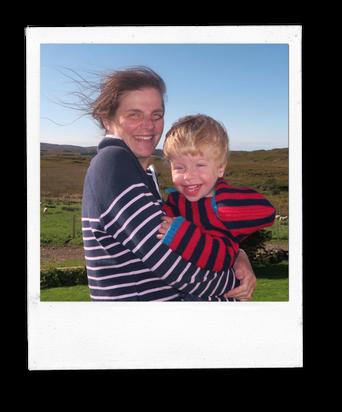



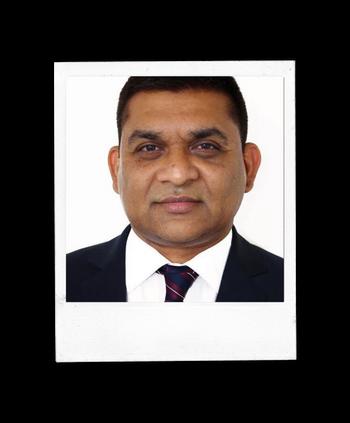
Children only
 Dr Jay Shetty
Dr Ram Kumar
ProfSiddharth Banka
Dr Katherine Martin
ProfessorParamala Santosh
Dr Jay Shetty Edinburgh Children's Hospital
Prof Siddharth Banka, Genetics Manchester Rare Conditions Centre (2-4 clinics per year)
Dr Ram Kumar Alder Hey Children's Hospital, Liverpool
Dr Dan Lumsden Evelina Rett Clinic Evelina Children's Hospital, London (Bi-monthly clinics)
Prof Paramala Santosh Psychopharmacology: Emotional, Behavioural and Autonomic Diresgulation CIPP Rett Centre, King’s College Hospital, London (Daily clinics)
Dr Katherine Martin Nottingham Children’s Hospital (2-4 clinics per year)
Dr Dan Lumsden
Dr Jay Shetty
Dr Ram Kumar
ProfSiddharth Banka
Dr Katherine Martin
ProfessorParamala Santosh
Dr Jay Shetty Edinburgh Children's Hospital
Prof Siddharth Banka, Genetics Manchester Rare Conditions Centre (2-4 clinics per year)
Dr Ram Kumar Alder Hey Children's Hospital, Liverpool
Dr Dan Lumsden Evelina Rett Clinic Evelina Children's Hospital, London (Bi-monthly clinics)
Prof Paramala Santosh Psychopharmacology: Emotional, Behavioural and Autonomic Diresgulation CIPP Rett Centre, King’s College Hospital, London (Daily clinics)
Dr Katherine Martin Nottingham Children’s Hospital (2-4 clinics per year)
Dr Dan Lumsden
We are currently working with existing clinics and with our colleagues at Rett UK, to explore how we can support the development of UK clinics so that when effective treatments for Rett Syndrome become available, there are established equitable UK clinics to deliver treatments.
We recently sent a survey out via the Rett Registry UK, to ask families about their experiences of clinics and what their priorities are, in terms of further development.

Thank you to all those who shared their experience to help us learn.
Each clinic experience has been quite different I think the true benefit comes from when specialists really get to know the specific child, the things that impact their day to day lives etc Often when it is a one-off appointment, I often think that there is less gained from the apt, especially when SO many professionals are involved in our child's care

It was a wonderful experience but it feels hard to get into a clinic.
RETT TALK
We’ve rebranded our old ‘Family Forum’ to ‘Rett Talk.’
We are also going to make it easier for families to join by simply sharing the Zoom link on the Reverse Rett Facebook page in the days leading up to each session.
Rett Talk takes place once a month and is hosted on rotation by Reverse Rett co-founders, Rachael and Andy Stevenson and Reverse Rett Trustee, Kim McMaster.
The sessions, which take place on Zoom are a great place to meet other parents, share experiences, ask questions, chat openly or simply listen.



There’s no set agenda, no judgement and no pressure.
You can talk, share and participate as much or as little as you like.
We chat about anything and everything Rettrelated, and learn a huge am and ideas from each other’s
We have also set up a Rett T
Rett Talk WhatsApp


WELCOME TO OUR TWO NEW TRUSTEES
We were delighted to welcome two new trustees to the board of Reverse Rett recently.
Mike Jones is Managing Partner at Core Marketing Partners, a Marketing Creative Agency based in London He first heard about Rett Syndrome after his friend’s daughter, Elsie was diagnosed with it.

Reverse Rett Co-Founder, Andy Stevenson said “Mike was inspired by 6 year old, Elsie who has Rett Syndrome and has developed several advertising campaigns to raise both awareness and funds to help with the development of a cure for this debilitating condition for which there is currently no treatment
These campaigns have appeared in national newspapers, on billboards, on trains around the UK and the London Underground, helping our small but national organisation at what is a difficult time for all charities.”
Mike Jones commented “I got involved because of Elsie and having since learnt so much about Rett Syndrome and the work Reverse Rett do, I want to be able to assist in any small way I can to help all families dealing with this horrible neurological condition.
I have two teenage kids myself, unaffected by Rett, and every day I just feel very lucky, I have also been fortunate that everyone at Core wants to do something that could help bring about change.”
 Mike Jones & Elsie
Andy & Mike
Mike Jones & Elsie
Andy & Mike
DR JOCELYN LEBLANC
Dr Jocelyn LeBlanc earned a PhD in Neuroscience from Harvard Medical School where she worked in the laboratory of Dr. Michela Fagiolini. Jocelyn then made the unusual shift from working with Rett mice to working with children with Rett Syndrome at Boston Children’s Hospital.
After moving to the UK with her own family, Jocelyn worked for the umbrella medical research organisation, the Association of Medical Research Charities (AMRC) for 5 years where she was responsible for overseeing the collection, analysis and publication of sector data to demonstrate the scale of charity investment in medical research and highlight the impact of this research on people and society
Last November Jocelyn became the Research Impact Lead at Diabetes UK.

Jocelyn said “I was deeply impacted by my time spent with children with Rett Syndrome and their families while doing my postdoctoral research. I’m thrilled to join Reverse Rett as a trustee to contribute to this mission that is close to my heart and support in any way that I can ”
“We are delighted that Jocelyn has decided to become a Trustee of Reverse Rett” said John Sharpe, Chair of Trustees, “As we move into a new phase of advocacy for regulatory approval of developing treatments, the knowledge Jocelyn gained at the AMRC will bring essential and unique experience to the Board to help us in our work.”
Welcome to the board, Mike and Jocelyn Thank you for your commitment to Reverse Rett. We are all looking forward to working with you.
Dr Jocelyn LeBlanc
On Valentine's Day, we posted the following on facebook, asking families to share pictures of their much loved family member with Rett.




Here is the post and the pictures that came back to us: 'One of the most difficult things about loving someone with Rett Syndrome is that other people often don’t understand that we love them just the same as anyone else loves their child; fiercely, full of pride and without reservation












Whether it’s the passer by with their sympathetic glance, the concerned friend, ‘I don’t know how you do it,’ or the doctor in the hospital asking you if you want to sign a DNR, it can be difficult to convey how much they are loved, not only how much they are loved but the quality of that love. As our children have taught us, some things are better expressed without words























CAN YOU WALK TO REVERSE RETT FOR SOMEONE YOU LOVE WITH RETT SYNDROME?

We have growing teams in two fantastic challenges this year and there’s still plenty of time to join them.
The Jurassic Juggernauts are a men’s team taking on 100k of the beautiful Dorset coastal path Starting on the morning of Saturday 13th May. The team will hope to finish in just over 30 hours.



Entries close on April 10th
It’s a challenge with different distance options so if you don’t want to do the whole you can do 10k, 25k or 50k instead and join the boys for some of the route.
Mark Walls is one of the team who is taking on his very first challenge for Reverse Rett. Here's his reason why.
"9th December 2021 will always be burned in my memory The day I was told my daughter Mollie, at 18 months old, had Rett Syndrome.

To say we have been to hell and back is an understatement; but as the days and weeks have passed we are slowly but surely rebuilding We will never accept Mollie’s diagnosis; we wholeheartedly believe she will not live with it for the rest of her life.
We are so excited and buoyed by all the clinical advancements; the cure is coming and we will be ready for it when it does. I signed up for the 100k Ultra because I couldn’t sit back and wait and not have played my part.
Mollie is so happy and so loved by everyone who meets her, she has a fierce personality, determined nature, loves her little sister Lily, even when she continually pulls her socks off, and loves her pony Betty
We can’t wait for the day when Mollie experiences life in all its colour."
FIND OUT MORE SCAN
HERE TO
Mark with daughter, Mollie
Mollie
A month later on the weekend of June 10th and 11th the Lake District Lakers will enjoy a trek around the Lake District. Again there are different distance options and we have supporters signed up to do all the distances available from 10 to 100k.

The Lake District is known for its glacial ribbon lakes, rugged fell mountains, historic literary associations and is home to England’s highest mountain, Scafell Pike.
Entries close on May 8th
Megan Shepherd and Dan Thorne’s daughter, Alba, was only diagnosed with Rett Syndrome recently and are part of the Lakers team.
"Our daughter Alba was diagnosed with Rett Syndrome in December 2022 after 18 months of assessments, referrals, tests and a lot of waiting. It has come as a devastating blow to our family and we're still figuring out how to move forwards.

One of the things we've noticed is how unknown Rett Syndrome is - even by a number of medical professionals we've come into contact with. Without awareness, there is no funding.
We wanted to do something to shout about Rett Syndrome and raise some money to help find a cure. We felt that if we're going to ask people for money then it's got to be something that's a real challenge, which is why we've signed up to the 100k Lake District Ultra Challenge. We're keen walkers but have never attempted anything like this!
Alba is the happiest little girl and has a smile that lights up any room. She is and will always be our Albs, but if we can help find a cure for this horrendous condition and improve her life in any way possible, any amount of blisters, sweat and tears is worth it!"

FIND OUT MORE SCAN HERE TO
Let's Reverse RETT together!
A BIG SHOUT OUT TO OUR LONDON MARATHON RUNNERS

Everybody loves the London Marathon and this year we have two people running for Reverse Rett.
James Wood
....is running in honour of his niece, Lily.

James said “I was inspired to run my first marathon for Reverse Rett by my wonderful niece Lily, who was diagnosed with Rett last year, shortly after her second birthday.
In her name and on behalf of our family I want to do my part to raise money for and awareness of this cause."
Lily
Steven Waters

....does not have a family member with Rett Syndrome but was inspired to run for us by Lotta and her siblings.
Steven said “As a keen runner and the Assistant Headteacher of a primary school, I’m always looking for ways to engage children in running and charitable acts.
This year I gave the children the opportunity to nominate a charity and a costume for my London Marathon effort (with the caveat that the charity must be relevant to our community and the costume must be awesome).
Reverse Rett was suggested as two of our children have a fantastic sister with Rett Syndrome. In their own words, they admire her for her resilience and kindness and feel comfortable and peaceful around their sister

Their acknowledgement that Reverse Rett is doing so much to help other children like their sister was humbling, truly a good cause
For me, Reverse Rett is an inspirational charity as it is run by parents of those with Rett Syndrome who put all donations to work, managing to achieve so much together I’m proud to run for all children with Rett Syndrome
As for the costume… after many suggestions it finally came down to a huge inflatable pterodactyl… which is far more challenging a costume than I was hoping for! However, a deal is a deal, so a dinosaur I shall be So, if you see a pterodactyl haunting the coasts of Devon, never fear: it’s only a teacher slightly questioning his life choices. Who knows, maybe we’ll set a World Record along the way."
It’s awesome to have our very first Reverse Rett Dinosaur competing in the London Marathon.
We have never been able to secure guaranteed charity places for the London Marathon and rely on supporters to be successful in the ballot then choose Reverse Rett as their charity, We are truly grateful that James and Steven have done just that.
Keep an eye out for them on the BBC on Sunday April 23rd. You won’t be able to miss Mr Waters!
Lotta
CAN YOU RUN A MARATHON FOR REVERSE RETT?
by Andy Stevenson
For many, running a Marathon is on their bucket list.
If raising money is your main goal for taking on a challenge then a Marathon is top of the list for maximising donations Months of training and the toil of running 26 2 miles inspires giving like no other event.
Much of this is because of the London Marathon The wall-to-wall coverage of the carnival like atmosphere each April inspires people to donate and gets many of them off the couch and into their running shoes.
Unfortunately, like many small charities, Reverse Rett can’t get guaranteed charity places for London but that doesn’t mean we can’t secure YOU a marathon place at one of the other amazing events around the UK and Europe.
This year we have guaranteed charity places at a number of big city Marathons including Edinburgh, Brighton, Manchester, Paris, Barcelona and Amsterdam. We already have a growing team for Amsterdam in October including Giedre who is running after being inspired by Elsie.

"Running the Amsterdam Marathon is a dream come true for me
It is a prestigious race that attracts thousands of runners and is one of the fastest courses, great for beating your personal best.
I am honored to run for Reverse Rett and Elsie, who need our help to find a cure for Rett Syndrome."
Elsie
Andy & David
I’ve run 5 Marathons with 2 of them being the London Marathon and believe me, the pain and sense of achievement at the finish line is exactly the same whether it’s London, Loch Ness, Leeds or Manchester.


So if you think you have what it takes to run a Marathon then please contact me at andy@reverserett.org.uk or check out this page
Find out more here
Giedre
GOODBYES
This month, we’re also saying goodbye to two of our team members, Beth Johnsson and Rashida Hossain.


We greatly appreciate all the work they have done for Reverse Rett over the years and wish them all the best in their future endeavours!
WE'RE HIRING!
Established in 2010, with a strong focus on fundraising, Reverse Rett has helped drive Rett Syndrome research out of the lab and into clinical trials of treatments which will change the lives of people living with this devastating disease.
As we move forward into these pivotal times, demand on our small but national team is growing We now need a skilled and experienced Operations Manager to work with our CEO to help implement our 5-year strategic plan and build organisational capacity to help make our vision a reality Could it be you? Apply on LinkedIn or email rachael@reverserett.org.uk with CV and cover letter.

R a s h i d a
Beth with daughter, Hannah


NEW ADDRESS REVERSE RETT BEEHIVE LOFTS JERSEY ST ANCOATS MANCHESTER M4 6JG 07596 139 466 Reverse Rett Team; Rachael, Ewelina, Andy, Hazel & Wesley WE'VE MOVED

Registered charity in England & Wales, charity number 1136809 and in Scotland, charity number SC046735 A company limited by guarantee number registered in England & Wales, company number 07278507 Find us on Facebook, Twitter, Instagram and Vimeo under 'Reverse Rett' www.reverserett.org.uk New Address: Reverse Rett Beehive Lofts Jersey St Ancoats Manchester M4 6JG 07596 139 466 info@reverserett.org.uk






















 RachaelStevenson,ProfessorStuartCobb &KateMcMaster(Trustee)
Dr Jay Shetty, Rachael Stevenson & Dr Dan Lumsden
RachaelStevenson, Dr Dan Lumsden & Kate McMaster (Trustee)
RachaelStevenson,ProfessorStuartCobb &KateMcMaster(Trustee)
Dr Jay Shetty, Rachael Stevenson & Dr Dan Lumsden
RachaelStevenson, Dr Dan Lumsden & Kate McMaster (Trustee)











 Dr Jay Shetty
Dr Ram Kumar
ProfSiddharth Banka
Dr Katherine Martin
ProfessorParamala Santosh
Dr Jay Shetty Edinburgh Children's Hospital
Prof Siddharth Banka, Genetics Manchester Rare Conditions Centre (2-4 clinics per year)
Dr Ram Kumar Alder Hey Children's Hospital, Liverpool
Dr Dan Lumsden Evelina Rett Clinic Evelina Children's Hospital, London (Bi-monthly clinics)
Prof Paramala Santosh Psychopharmacology: Emotional, Behavioural and Autonomic Diresgulation CIPP Rett Centre, King’s College Hospital, London (Daily clinics)
Dr Katherine Martin Nottingham Children’s Hospital (2-4 clinics per year)
Dr Dan Lumsden
Dr Jay Shetty
Dr Ram Kumar
ProfSiddharth Banka
Dr Katherine Martin
ProfessorParamala Santosh
Dr Jay Shetty Edinburgh Children's Hospital
Prof Siddharth Banka, Genetics Manchester Rare Conditions Centre (2-4 clinics per year)
Dr Ram Kumar Alder Hey Children's Hospital, Liverpool
Dr Dan Lumsden Evelina Rett Clinic Evelina Children's Hospital, London (Bi-monthly clinics)
Prof Paramala Santosh Psychopharmacology: Emotional, Behavioural and Autonomic Diresgulation CIPP Rett Centre, King’s College Hospital, London (Daily clinics)
Dr Katherine Martin Nottingham Children’s Hospital (2-4 clinics per year)
Dr Dan Lumsden








 Mike Jones & Elsie
Andy & Mike
Mike Jones & Elsie
Andy & Mike






















































